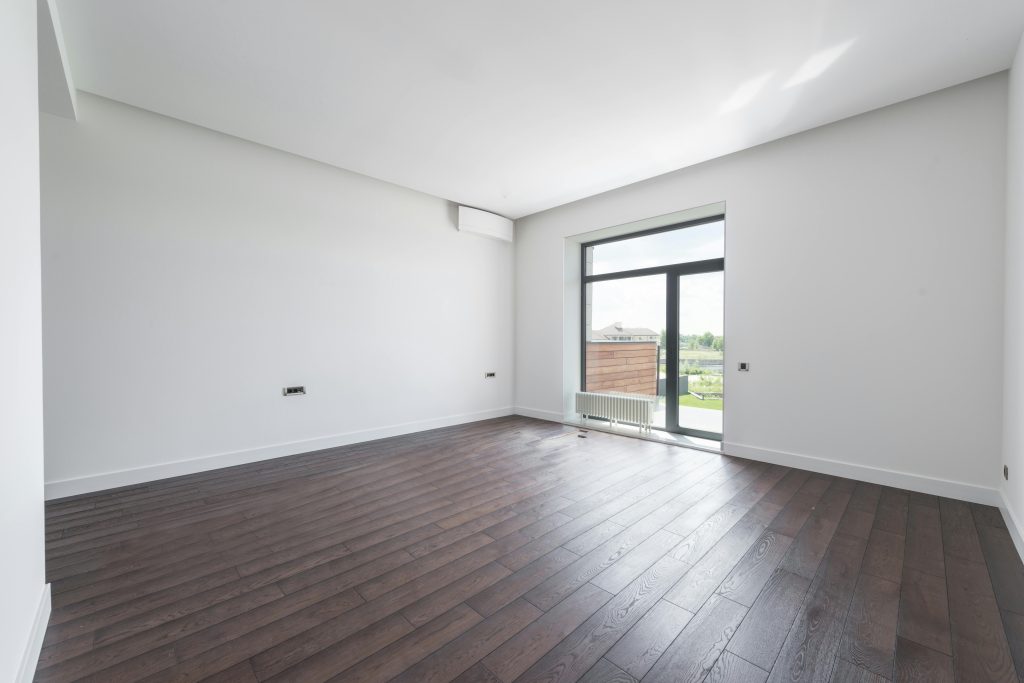Selling a property in the UK can come with a sting in the tail: Capital Gains Tax (CGT).
Good news? If it’s your main home, you’re likely off the hook.
But there are exceptions that could catch you out, and knowing the rules can save you from a hefty HMRC bill. This guide explains when CGT applies, when it doesn’t, and how to legally minimise or avoid it. We’ll also cover inherited properties, gifted homes, and give you clear next steps for selling smart.
Let’s dive in.
What Is Capital Gains Tax?
Capital Gains Tax (CGT) is a tax on the profit you make when selling an asset that’s increased in value.
It’s not the total sale price that’s taxed- just the gain (the difference between what you paid and what you sold it for).
This applies to assets like:
- Shares
- Valuable items (e.g., art, jewellery, antiques)
- Investment portfolios
- And, crucially, property that isn’t your main home
When Property Is Taxed
CGT typically applies when you sell:
- A second home
- A buy-to-let property
- A holiday let
- Part of your main home if you’ve used it for business or rented it out
If you’re a landlord or property investor, HMRC’s got you in their sights.
When You Do NOT Pay Capital Gains Tax
Let’s start with the best bit.
If you’re selling your main residence, you’re likely exempt from CGT thanks to Private Residence Relief (PRR).
You Qualify for PRR If:
- The property has been your main home for the entire time you’ve owned it
- You haven’t rented it out (except to a single lodger under the Rent a Room scheme)
- No part of it was used exclusively for business
- The property and its grounds are under 5,000 square metres (about 1.24 acres)
- You didn’t buy it solely to make a quick profit
Pro Tip: Even if you only lived in the property for part of the time or rented out a portion, you might still get partial PRR. More on that later.
Other Situations Where You Avoid CGT
You might dodge CGT even if the property isn’t your main home:
- No profit made: If you sell for the same or less than you paid, there’s no gain, so no tax.
- Within your CGT allowance: For the 2025/26 tax year, you can make up to £3,000 in gains tax-free (£6,000 for couples if you own the property jointly).
- Transferring to a spouse or civil partner: These transfers are CGT-exempt.
- During divorce or separation: Transfers in the tax year of permanent separation (or up to three years under new rules from April 2023) are often tax-free.
- Gifting to charity: No CGT applies on gifts to registered UK charities.
When You DO Pay Capital Gains Tax on Property
If PRR doesn’t cover you, CGT is likely due. Here’s when it hits.
1. Selling a Second Home or Buy-to-Let
If the property wasn’t your main residence for the full period of ownership, you’ll owe CGT. This includes:
- Holiday homes
- Buy-to-let properties
- Properties you’ve inherited and later sold
- Homes you lived in briefly before renting out
You’re taxed on the gain only after deducting:
- Allowable expenses (e.g., stamp duty, solicitor fees, estate agent costs)
- Eligible reliefs (like partial PRR or lettings relief)
- Your annual CGT allowance (£3,000 for 2025/26)
Example:
You bought a buy-to-let for £200,000 and sold it for £270,000.
- Gain: £270,000 – £200,000 = £70,000
- Minus £3,000 allowance: £70,000 – £3,000 = £67,000
- Taxable gain: £67,000
2. Inherited Property
You don’t pay CGT when you inherit a property. But if you sell it later, and you might.
HMRC uses the market value at the date of death as your “purchase price” figure. The gain is calculated from that value, vs the actual sale price (once its been sold by you) to determine what the ‘gain’ is.
Example:
- You inherit a home valued at £300,000.
- You sell it two years later for £350,000.
- Taxable gain: £350,000 – £300,000 = £50,000 (minus your £3,000 allowance = £47,000).
Of course you can also subtract allowable expenses too, but these vary widely from property to property. There’s a section below on what they are.
Important: CGT is separate from Inheritance Tax (IHT). You might face both on the same property, but they’re calculated differently.
CGT rate for executors (aka ‘personal representatives’) is set at 24% on the net gain.
3. Gifted Property
Gifting a property to someone other than your spouse or a charity counts as a taxable disposal.
The gain is based on the property’s market value at the time of the gift, not what you originally paid – even if no money changes hands.
This often trips up people transferring homes to adult children.
4. Selling Part of Your Home
You might owe partial CGT if you:
- Rented out a portion of your main residence (beyond a single lodger)
- Used part of it exclusively for business
- Sold off part of your garden or land
HMRC may split the gain proportionally, taxing the non-residential or non-exempt portion.
Example: If you sell part of your garden (e.g., a building plot) and it’s no longer used as part of your home, CGT could apply to that portion.
Current CGT Rates
For the 2025/26 tax year, CGT rates on residential property are:
- 18% for basic-rate taxpayers (if the gain, when added to your income, stays within the basic-rate band of £50,270).
- 24% for higher-rate taxpayers (or if the gain pushes you into the higher-rate band).
- 24% for executors of a will.
Pro Tip: Check your taxable income before selling. A lower income year could mean a lower CGT rate, so it’s often wide to sell in a year where your overall income is lower.
What Are the Allowable Expenses?
Here’s a breakdown of the main categories of allowable costs you can deduct when working out a UK capital gain (whether on property, shares or other assets):
- Acquisition costs
The actual amount you paid for the asset plus any incidental costs of acquisition, for example:
Stamp Duty (or Stamp Duty Land Tax) and other transfer/conveyance duties
• Legal fees (conveyancing or purchase contracts)
• Surveyors’, valuers’ or auctioneers’ fees paid to establish market value
• Broker’s commission on a share purchase
- Disposal costs (incidental costs of disposal)
Costs you incur solely to sell or transfer the asset, such as:
• Estate‑agent’s or auctioneer’s fees
• Solicitor’s or legal adviser’s fees for the sale contract
• Advertising costs to find a buyer
• Professional fees for valuations or apportionments needed to compute the gain
• Packing, carriage and insurance (for chattels) - Enhancement (improvement) costs
Capital expenditure that adds to the value of the asset (not routine repairs or maintenance). Examples include:
• Building an extension or a new garage
• Structural alterations that increase market value
• Installing features such as en‑suite bathrooms or fitted kitchens
How to Reduce or Avoid CGT on Property
Caught in the CGT net? Don’t worry, there are HMRC-approved ways to cut your bill or avoid it entirely.
1. Use Your Annual CGT Allowance
Each tax year (6 April to 5 April), you can make gains up to £3,000 tax-free (£6,000 for couples).
Plan your sales to stay within this limit if possible.
2. Transfer to a Spouse or Civil Partner
Transferring all or part of the property to your spouse or civil partner before selling is CGT-exempt.
Why bother?
- Doubles your CGT allowance to £6,000.
- Splits the gain across two tax bands, potentially saving thousands if one of you is a basic-rate taxpayer.
Example:
- You’re a higher-rate taxpayer (24% CGT). Your spouse is basic-rate (18% CGT).
- Splitting ownership means you each pay tax on your share at your respective rates.
3. Claim Lettings Relief (If Eligible)
Lettings relief was scaled back in April 2020, but it’s not gone entirely. You may qualify if:
- You lived in the property as your main home at some point.
- You let out part of it (not the whole property) while living there.
- You shared occupancy with the tenant (e.g., as a live-in landlord).
If eligible, you can claim up to £40,000 in relief (£80,000 for couples), but only up to the amount of PRR you’re entitled to.
4. Offset Losses
Sold assets like shares or another property at a loss? You can deduct those losses from your taxable gain.
You can also carry forward unused losses indefinitely, but you must report them to HMRC within four years.
5. Claim Improvement Costs
Deduct the cost of capital improvements (not repairs) from your gain. Examples include:
- Extensions, loft conversions, or conservatories
- New kitchens, bathrooms, or structural upgrades
Keep receipts: HMRC may ask for proof.
FY: Routine maintenance (e.g., repainting) doesn’t count against CGT, but it does count against normal income tax on any rental income as a taxable allowance.
6. Use a Deed of Variation (for Inherited Property)
Inherited a property but want to pass it on to someone else (e.g., a child or spouse)? A deed of variation, done within two years of death, can redirect the inheritance, potentially avoiding CGT and IHT.
You’ll need a solicitor and agreement from all beneficiaries.
7. Time the Sale Strategically
Selling in a tax year when your income is lower could keep more of your gain in the 18% CGT band.
Other tricks:
- Delay the sale until after 6 April to use a new tax year’s allowance if this years allowance is already partially used
- Sell in two chunks across different tax years (if you’re disposing of part of the property).
Bottom Line: A bit of planning can slash your CGT bill. Simple moves like spousal transfers or claiming improvements make a big difference.
How to Report and Pay Capital Gains Tax When Selling a Property
If CGT is due, HMRC expects you to report and pay promptly. Here’s how to stay on their good side.
1. When to Report and Pay
For UK residential property sales, you must:
- Report the gain within 60 days of completion.
- Pay the tax within the same 60-day window.
This applies even if you file a Self Assessment tax return.
Pro Tip: Set a calendar reminder when you complete the sale. Missing the deadline means penalties and interest.
2. How to Report a Property Gain
You’ve got two options:
Option A: Online via HMRC’s Property CGT Service
This is the quickest way. You’ll need:
- A Government Gateway account
- Property details (sale/purchase dates, amounts, fees)
- Calculations for your gain, deductions, and reliefs
- Your estimated CGT bill
Start here: HMRC’s CGT on UK Property Service.
Option B: Through Self Assessment (if applicable)
If you already file a Self Assessment return:
- Report and pay within 60 days via the CGT Property Account.
- Declare the gain again in your annual tax return to avoid double reporting.
3. What Happens If You Miss the Deadline?
HMRC doesn’t mess around. Miss the 60-day window, and you’ll face:
- Late filing penalties
- Interest on unpaid tax
If you’re unsure about your gain, report an estimate and adjust later.
4. What If No CGT Is Due?
If your sale is fully covered by PRR or the gain is below your £3,000 allowance, you don’t need to report it.
Still unsure? A quick chat with a tax advisor can save you hassle.
Documents You’ll Need for CGT Reporting
- Completion statement from your solicitor
- Evidence of the original purchase price
- Receipts for costs (e.g., legal fees, stamp duty, estate agent fees, improvements)
- Valuation at the time of inheritance (if applicable)
- Details of any reliefs you’re claiming (e.g., PRR, lettings relief)
Exceptions, Exemptions & Special Cases
Not every sale fits neatly into “main home” or “buy-to-let”. Here are some tricky scenarios where mistakes are common.
1. Divorce or Separation
Transferring a property to your ex? You might avoid CGT under the “no gain, no loss” rule if:
- The transfer happens in the tax year of permanent separation (by 5 April).
- Or, under rules from April 2023, within three years of separation (or longer if under a court order).
Example:
You separate in August 2025. You have until 5 April 2028 (or later with a court order) to transfer the property CGT-free. Miss that window, and CGT may apply based on market value.
Tip: Speak to a solicitor—divorce rules are complex.
2. Selling at a Loss
No CGT applies if you sell at a loss.
But don’t skip reporting it. Why?
- You can offset the loss against other gains now or in the future.
- Losses can be carried forward indefinitely, but you must report them within four years.
3. Selling Land Separately (e.g., Part of Your Garden)
Selling part of your garden (e.g., a building plot) can trigger CGT if:
- The land exceeds 5,000 square metres (1.24 acres).
- It’s no longer used as part of your home.
- You bought the property with development in mind.
You might still qualify for partial PRR, depending on how the land was used. Check with a tax advisor.
4. Selling Property Abroad
UK residents pay CGT on worldwide gains, including holiday homes abroad.
You must report and pay within 60 days, just like UK properties. However, double taxation treaties with countries like Spain or France may reduce your bill. Check treaties via HMRC’s guidance.
5. Non-Resident CGT
If you’re a non-UK resident selling UK property, you’re also liable for CGT on gains made since April 2015.
Key points:
- You must report the sale within 60 days, even if no tax is due.
- Non-residents get the same £3,000 CGT allowance as UK residents.
- Rates are 18% (basic) or 24% (higher), like UK residents.
More details at HMRC’s Non-Resident CGT page.
Capital Gains Tax Planning Tips (Quick Checklist)
Want to sell tax-efficiently? Run through this:
- Check PRR eligibility: Is it your main home? No tax if it qualifies.
- Maximise your allowance: Stay within the £3,000 per person limit.
- Consider spousal transfers: Double your allowance or split tax bands.
- Claim all deductions: Include improvements, fees, and losses.
- Time it right: Sell in a low-income year or across two tax years.
- Get professional advice: A tax advisor can spot reliefs you’ve missed.
Final Thoughts
CGT can feel like a maze, but it’s manageable with the right know-how. Whether you’re selling a second home, an inherited property, or part of your garden, planning ahead can save you thousands.
Start by checking if PRR applies. If not, use your allowance, claim deductions, and consider timing or spousal transfers to cut your bill. And don’t sleep on the 60-day reporting deadline. HMRC’s penalties aren’t worth risking.
Need more help? Visit HMRC’s CGT hub or speak to a tax advisor to nail your next steps.
If your property’s become a CGT headache, or you just want out without the stress, we’ve got your back.
Visit Property Rescue to get your free, no-obligation offer today.









